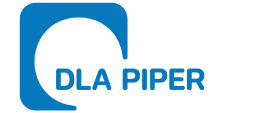“The beginning of 2018 brought a comprehensive transformation of legal procedures in Hungary,” reports Andras Daniel Laszlo, Partner at Laszlo Fekete & Bagamery. “Procedural rules changed, from the most basic public administrative procedures, like renewing an ID or applying for a building permit, through commercial litigation and arbitration procedure, including also tax, and, as of July 1, criminal matters.”
According to Laszlo, “these new rules give a lot to talk and think about for lawyers. For businesses, they increase the importance of sophisticated legal advice and the value added by high quality legal work.”
“The new code on general public administration procedures, which touches upon most government functions, is more modern and client-oriented,” Laszlo reports, adding that “it contains a lot of new institutions aiming to speed up legal processes and make them more efficient.” In addition, he says, “similarly, the new code on administrative litigation is also more focused. For lawyers, this is also a challenge, because the new rules do not only prevent bad faith tactics, but also severely sanction procedural mistakes.”
As Laszlo explains, the rules of Hungarian tax procedure were also totally revised. “Instead of a uniform code we now have an interconnected system of laws and implementation decrees. The complexity of the regulation is both a challenge and an opportunity for attorneys, because it requires more sophistication when it comes to business tax disputes and strategic advice,” he says. “Since new materials can only be introduced during the first phase of the tax audit, lawyers must have a perspective on the entire procedure from the very beginning of a tax investigation until the very end, maybe even before the Curia [the Supreme Court of Hungary — ed.] or the European Court of Justice.”
The new Hungarian Criminal Procedure Code, Laszlo says, also reflects a new mindset, aiming to speed up and streamline procedures. “It contains a number of new institutions,” he says, “and more importantly, it introduces an early preparatory hearing, which aims to structure the procedure more efficiently. There are also several ways of cutting short the procedure if the person being charged pleads guilty.” At the same time the new Code puts more emphasis on the protection and promotion of the rights of victims. “This makes sense,” he explains, “because they are the ones truly affected by the crimes, so they should be part of the process.”
When asked about the much-discussed new Civil Procedure Code and new Arbitration Act, dispute resolution specialist Laszlo adds that their modernization was vital and long overdue. “The availability of efficient, cost effective, well-functioning legal remedies for businesses is an important element of the competitiveness of a country. The reform of both regular court and arbitration procedures will add to Hungary’s attractiveness.”
When asked how these innovations are affecting firms and companies, the Laszlo Fekete & Bagamery Partner says that “the acts are generally pointing in a good direction, and their objectives are good, but their implementation could have been better prepared, and more thought through.”
“Some of them are understandable and certainly it was about time to change them — for commercial litigation, for example, we were still using an act from 1952,” he says. “But there is a lot of insecurity right now connected to some of the new acts. I think eventually they will work. For now, their complexity poses a lot of challenges for businesses and lawyers, but is also a good opportunity to sophisticated firms.”
Finally, turning briefly to an overview of the Hungarian business sector, Laszlo emphasizes that M&A has been booming for a long time now — he says that he and his colleagues continue to see lots of TMT and IT deals, and that the health and manufacturing sector is also receiving serious investments both from Hungarian and international entities. “The real estate sector is also booming, we see both green-field developments and transactions,” Laszlo says, “as a dispute specialist firm, we see this also reflected in the growing number of construction disputes."
In addition, regulatory matters — such as, primarily, the challenges posed by the GDPR — are always on the table. In this respect a notable recent amendment of Hungarian legislation requires the Data Protection Authority to apply the principle of proportionality and as a general rule to only give a warning for first time violators. "It is not an absolute rule, evidently, and if it is an outrageous breach they can take severe steps as well, but for minor cases, at their first breach companies will only get a warning,” explains Laszlo, adding that "this amendment came as a huge relief to many Hungarian companies.”




